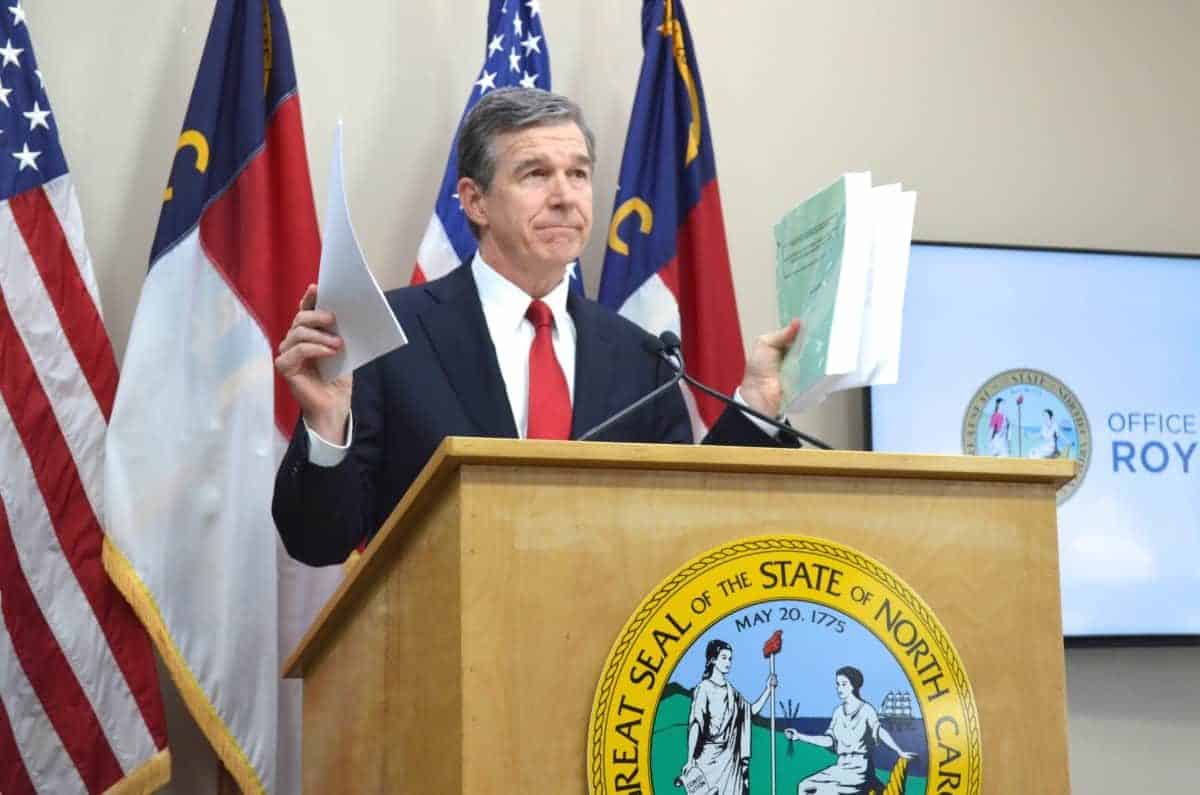

The extraordinary confluence of budgeting and redistricting that roiled the North Carolina General Assembly over this week has made freshly relevant such antique terms as gerrymandering, checks-and-balances, and tyranny of the majority. The swirl of drama in Raleigh arises out of long-developing political trends and cultural currents that shape today’s fractious public life.
Acting under a state court order, lawmakers worked under a tight deadline to redraw legislative districts that Republicans had designed to give them a practically impregnable majority. At the same time, the House GOP majority — casting aside legislative comity and credibility — moved to override Democratic Gov. Roy Cooper’s budget veto, voting in early morning when Democrats say they had been told that no votes were scheduled.
The current rough-and-tumble is not simply conventional inside-politics stuff. Yes, the tussles involve Democratic vs. Republican partisanship, as well as the natural rivalry of party leaders: Gov. Cooper vs. House Speaker Tim Moore vs. Senate Republican leader Phil Berger. Beyond that, what’s at stake are also fundamentals of democratic governance — whether the rules allow elections to reflect public will, who pays taxes and how much, and what priorities guide the distribution of government revenues.
Beneath the surface, influencing both redistricting and budgeting, are the two potent currents, mixtures of ideology, culture and economics, that have flowed through North Carolina public life for generations. One stream has produced public figures who promoted “progress’’ through public education and economic development to modernize the state; out of this stream has come a coalition of white and black leaders who worked toward racial change. A parallel stream has sustained traditionalist leaders who have sought to maintain the fiscal and cultural values of the state’s rural heritage and to advance the interests of a majority-white society in an era of population growth and demographic shifts.
Through the solid-South era, the Democratic Party contained both streams, generating intra-party factional fights. Through the success of the Republican Southern strategy and the political realignments in the wake of the 1960s civil rights legislation, the state GOP has become the more rural and traditionalist party. The Democratic Party is now a multi-ethnic coalition centered in the state’s growing cities.
From time to time, these streams have intersected, setting off campaigns characterized as fights for the soul of the state. The race-tinged campaigns of Willis Smith who defeated Frank Porter Graham in 1950 for the U.S. Senate and I. Beverly Lake who lost the governor’s race to Terry Sanford in 1960 took place in Democratic primaries. In contrast, the 1984 Senate race in which Jesse Helms, a segregationist Democrat-turned-hard-right Republican, defeated Jim Hunt and the 1990 race in which Helms defeated Harvey Gantt were decided in Republican vs. Democratic general elections.
In the 2010 elections, Berger, along with now-U.S. Sen. Thom Tillis, over-powered a lackluster Democratic campaign to win for Republicans a solid majority in both the state House and Senate. GOP momentum was fueled by the rise of the Tea Party, anxiety over the Great Recession, and a backlash against President Obama. In 2012, Republican Pat McCrory won the governor’s race and the party gained veto-proof majorities in the legislature. In effect, one stream was dammed, while the other stream gushed onward.
Education policy serves as a key indicator of how these elections had consequences. Republican rule has led to public schools graded on an A-through-F scale, to a third-grading reading mandate, to paltry pay raises for teachers — and a turn away from across-the-board salary increases — to business-tilted tax cuts that limit revenues available for schools, to subsidies for private education with barely minimal requirements for academic quality.
However dramatic and not-normal, legislative tempests cannot match the milestone statewide campaigns in stirring visceral public reactions. And yet, the two historic streams have collided anew. Cooper won the 2016 governor’s race, and his Democratic allies, while still in a minority, scored critical gains in the legislature.
In the gerrymandering legal case and the governor’s exercise of his veto power, the constitutional system of checks-and-balances came into play. In effect, the overturning of the GOP-forged legislative districts and the governor’s withering critique of the Republican-written state budget amount to cracks in the dam that had held one of the state’s classic societal streams in check. The 2020 election will almost assuredly result again in a clash of the state’s long-embedded political currents.


